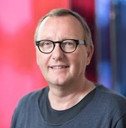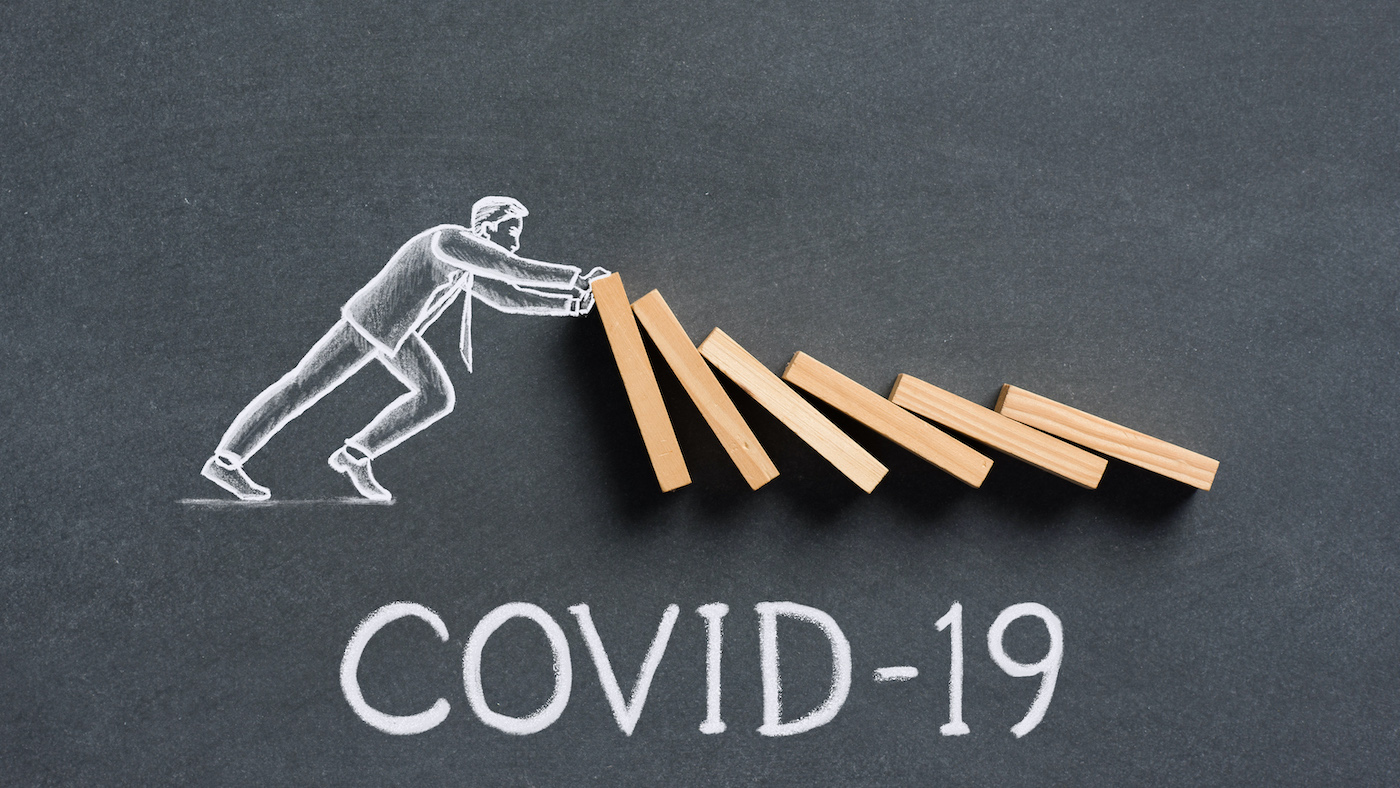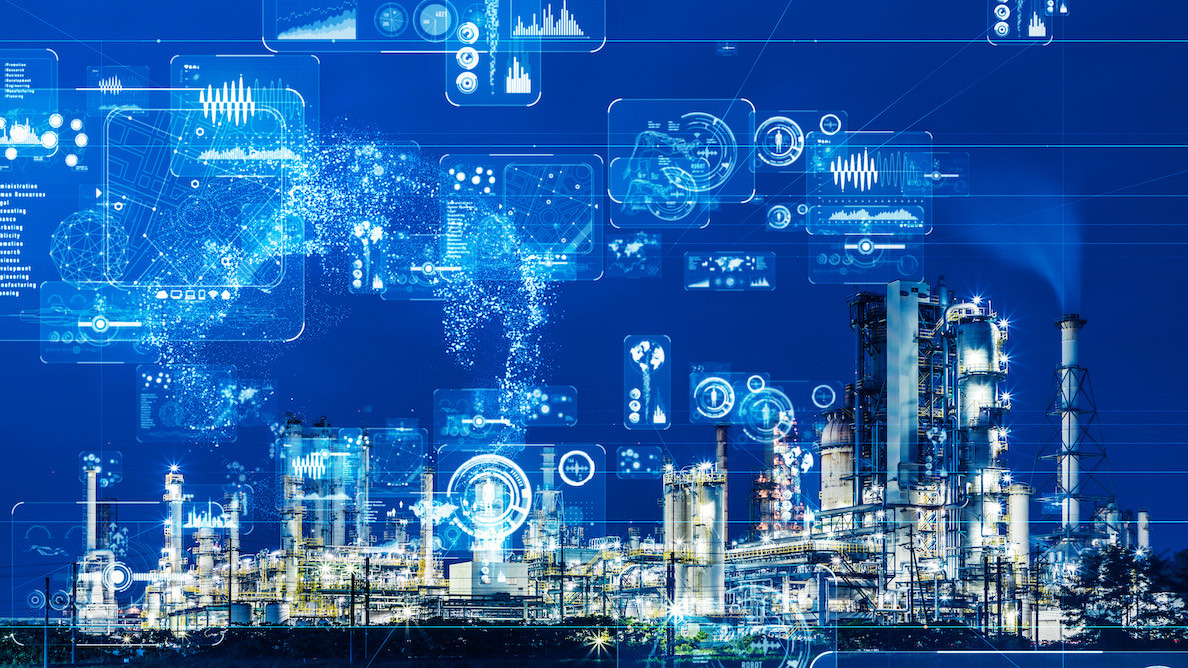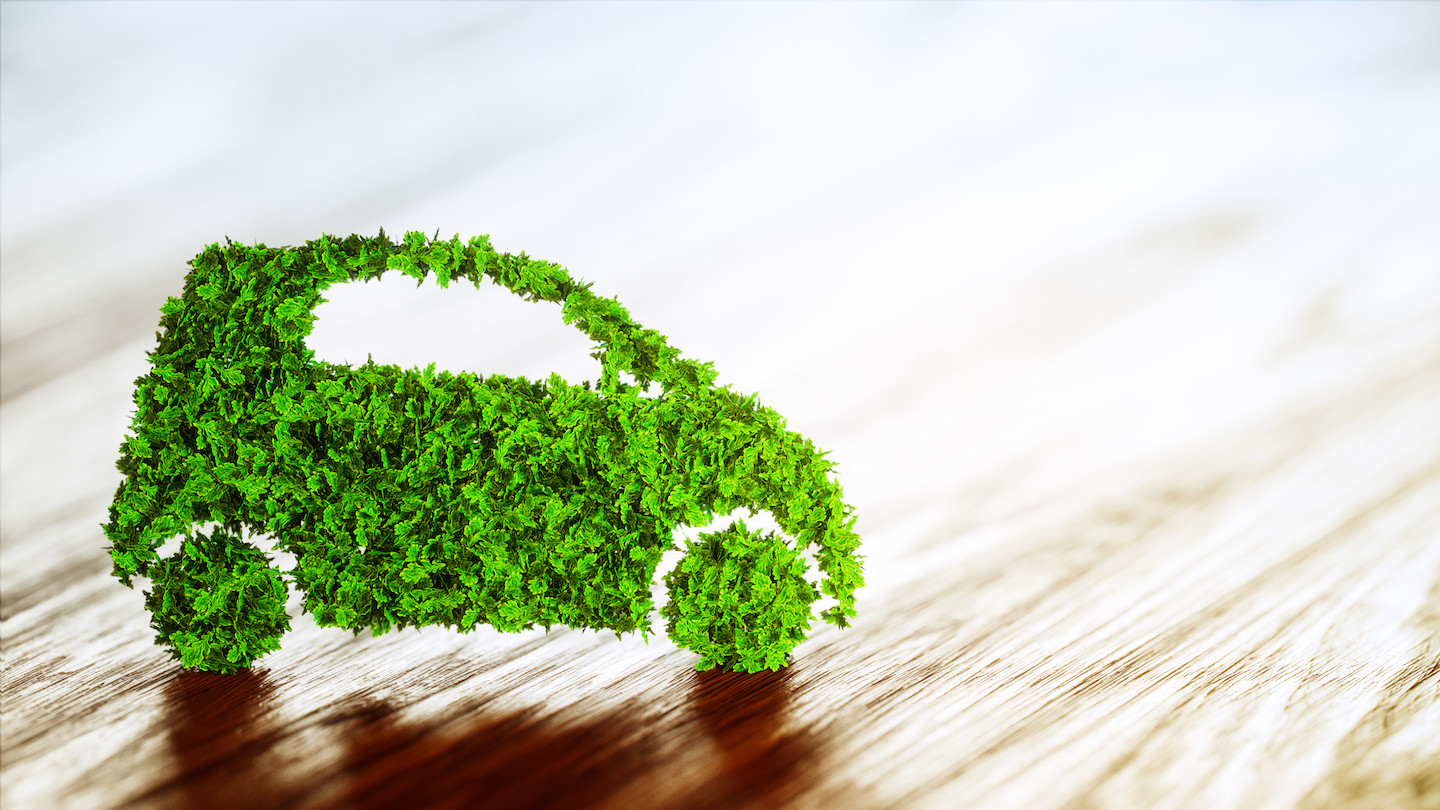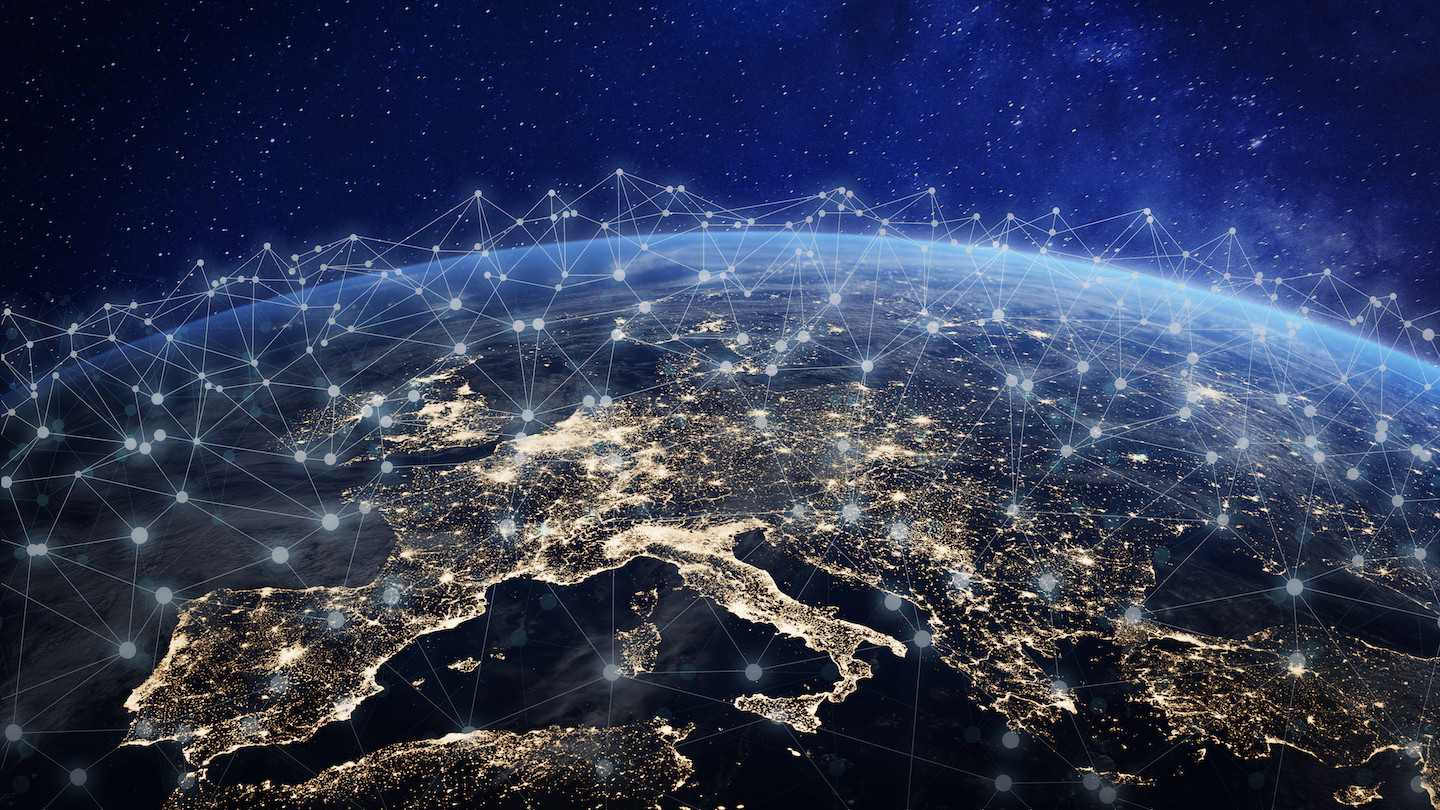Wake-up Call from the Biosphere: Living Digitally and Sustainably in a Better World
“We need to understand digital progress for what it is: the lever to greater sustainability,” says Karl-Heinz Land, in an interview with Nils Klute of eurocloud.de.
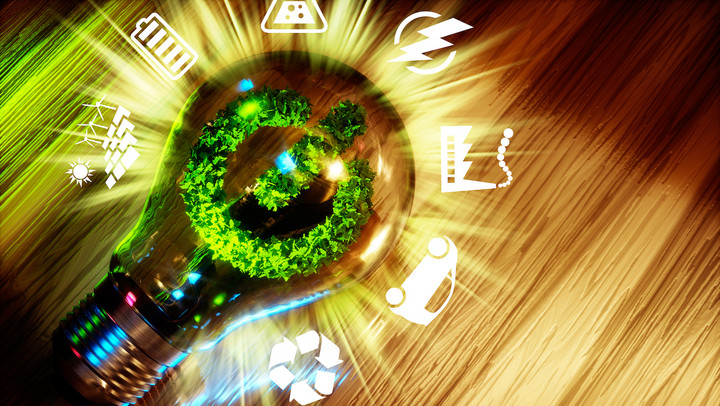
© Petmal | istockphoto.com
Nils Klute: Mr. Land, in your current book, you write about the coronavirus crisis as a turning point. How will the pandemic transform the world?
Karl-Heinz Land: The pandemic forces us to pause and question our system and behavior. As brutal as the events and consequences of the virus are for us, it is still time for a new beginning. It’s a chance to re-arrange ourselves, to identify and fix the root causes of problems, instead of just numbing symptoms.
Klute: Can you give us an example?
Land: Our coexistence has changed and made us aware of how significant digitalization is for our society. Taking the company car to visit a customer or flying to a conference – none of this used to be a problem.
What often unnecessarily consumed resources, produced exhaust fumes and waste, and polluted the environment, is now replaced as a matter of course with messenger apps, video chats, and online events. We have recognized that, in many cases, work does not need a specific location. That’s why companies are downsizing their office space and establishing mobile workplaces. A change that would otherwise have taken months, but has now succeeded in just a few weeks. Schools are also recognizing what they have neglected: How to learn together online and impart knowledge digitally.
Klute: Why are we only tackling this now in Germany?
Land: Germany is a country of philosophers. Being courageous and breaking new ground puts an end to all of the musing. Tackling, trying things out, and simply doing them were not among our strengths up to that point. The coronavirus gave us no choice in the matter and hit us where it hurts the most: our own well-being.
Klute: What is the state of our well-being?
Land: No crisis has ever been felt so keenly by our generation. Let’s think about climate issues, migration problems, poverty, and hunger in the world – these are all no less pressing issues that we need to resolve. But these are questions where no one feels how much it affects them individually. The result: a socially unequal world.
Klute: In your book “Erde 5.0” (“Earth 5.0 – Provoking the Future”), you assume that digitalization can bring the world into balance. How realistic is that?
Land: Digitalization provides us with all the tools to save the world. Covid-19 once again shows what this can look like. Whereas it used to take years to develop vaccines, today we can do it in a matter of months. Not only in biochemistry are digital innovation, human know-how, and artificial intelligence (AI) the keys to success…
Klute: Where else?
Land: ...in all areas of life and work! Let’s think about traffic, for example. More and more people are living in huge cities. Far too many cars clog the streets. But the efficiency of your own car is minimal. Instead of owning cars, we need to share them online via digital sharing platforms. And instead of continuing to drive them ourselves, we need to plan their usage with AI intelligently and control them autonomously.
Klute: And how can social issues be solved digitally?
Land: The key is education. And the Internet is the basis for democratizing knowledge, educating people, and letting them participate globally. When everyone in the world can participate, we reduce social inequality in the long run and empower each other to shape the future.
Klute: How quickly will this future become reality?
Land: Very soon! People think linearly. But digitalization is advancing exponentially. We have also seen how difficult it is for us to assess exponential processes with the spread of Covid-19. The digital world is spinning faster by the day.
Klute: What are you basing that on?
Land: In his books, Jules Verne let us travel to the moon and to the deepest point of the sea. It was not until a century later that the technology was available to actually do this in real life. With Elon Musk, things have worked differently: He announced plans to let people fly into space – and just ten years later, his autonomous spacecraft to the ISS docked with the space station. Advances like these are made possible by AI, digital technologies, and the Internet.
Klute: Digitalization also aims at being sustainable, and not just since the last Digital Summit in Germany. Why is this necessary?
Land: We need to understand digital progress for what it is – the lever to greater sustainability: Sustainability that can balance the demands of ecology, society, and the economy.
Klute: What does that mean in practical terms?
Land: Let’s think back to autonomous transport. If we manage our networked mobility of tomorrow intelligently, we can achieve more with fewer resources. If we need fewer cars, we protect the climate and the environment. What is certain is that any car that is not built at all is the most sustainable!
Klute: What’s in store for the automotive industry?
Land: The future belongs to intelligently controlled passenger pods. We will use these as self-evidently as an elevator. Who cares about what brand the elevator is? I just want to get to my floor. Not just the automotive industry must rethink itself – all industries must.
Klute: How ready is the business community for a mindshift?
Land: To give you an example: Software and service are how value will be created in the future. In order to make money, companies must be willing to share data with each other. This is precisely the point where cultural differences become apparent. Rightly so, issues of data security, data sovereignty, and data protection are high on the agenda. However, data often remains in silos because companies are pursuing territorial self-interests. However, sharing in the data economy is the basis for wealth and prosperity that can benefit everyone equally.
Klute: GAIA-X is supposed to secure the prosperity of the European data economy. What do you think of the initiative?
Land: A distributed data ecosystem based on European values and standards is a good approach. But I have some doubts about whether it will really take off because the cultures are so different. In my opinion, the benefits of the project are too difficult to convey. I would like to see a lot more about the benefits to consumers.
Klute: What benefits do you think of when you think of GAIA-X?
Land: GAIA-X would be able to show how organic, fair, or resource-efficiently something was produced, grown, or generated. All this data flows through GAIA-X! In the end, everyone in the supermarket should be able to decide what they put in their shopping cart. Scan the barcode with your smartphone, retrieve information via the Internet – done!
Klute: It’s clear that the Internet is becoming more and more important. How do we ensure that everyone can benefit?
Land: The Internet is the infrastructure of future prosperity. Therefore, access to the Internet must be a fundamental right. We must not run the risk of cutting off those who do not have access. Jules Verne didn’t cover this in his novels, but Elon Musk offers us a vision with Starlink.
Klute: Speaking of novels: With your latest book “Permanent Error”, you also break new ground. Why is it a crime novel?
Land: In order to get many more people interested in my topics and ideas, I decided against writing a non-fiction book. So it became a business thriller that questions our unconditional pursuit of more.
Klute: Not a digital topic?
Land: Oh, but it is! The main protagonist is a journalist who is researching the emissions scandal and suddenly becomes a suspect himself. I try to explain the mechanisms that lead corporations and people to be seduced down such a path. A lot of it is a matter of the wrong incentives. This creates a downward spiral that we can only break if we correct the permanent system error of our times. Digitalization is a building block for this. It gives us the opportunity to reinvent the future every day to live sustainably in a better world.
Klute: Thank you for the interview!
As an internationally sought-after keynote speaker and coach, as a visionary and author, and as an insider of the digital transformation scene, Karl-Heinz Land creates awareness of the pace, depth, and extent of digitalization. He approaches digitalization in a way that is as consistent as it is interdisciplinary and accepts no limits to thinking. In this way, Land exposes the hidden connections and drivers of digitalization and helps companies and organizations move toward the future. Since the beginning of 2020, Land has been a member of the Presidency Committee of eco – Association of the Internet Industry.
Nils Klute is Project and Communication Manager at EuroCloud Germany. He is responsible for content marketing activities on topics such as GAIA-X and AI, supports initiatives such as Service-Meister, EuroCloud Native or systems integrators on their cloud journey. Prior to his start at eco in 2018, Nils worked as a corporate journalist for IT corporations (like SAP, T-Systems, and QSC at Cologne-based communication agency Palmer Hargreaves) and previously held public relations positions at market and economic research institutions.
Please note: The opinions expressed in Industry Insights published by dotmagazine are the author’s own and do not reflect the view of the publisher, eco – Association of the Internet Industry.

